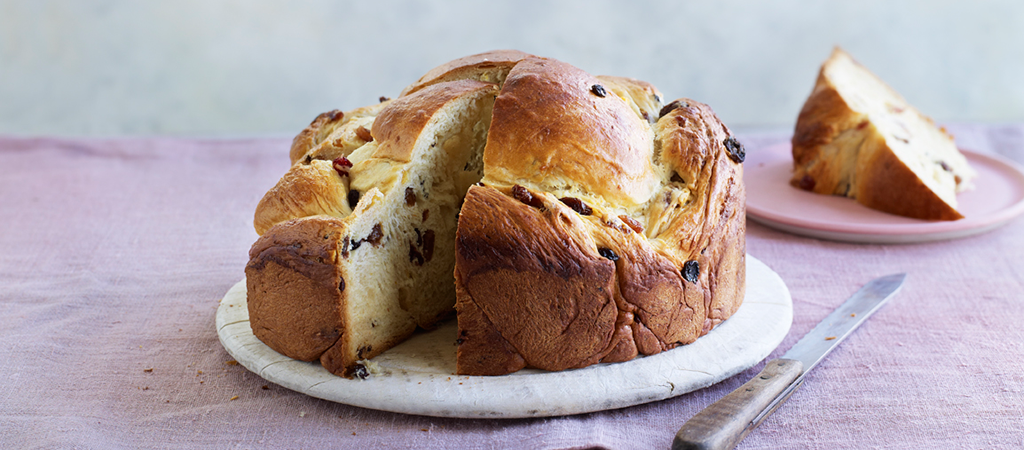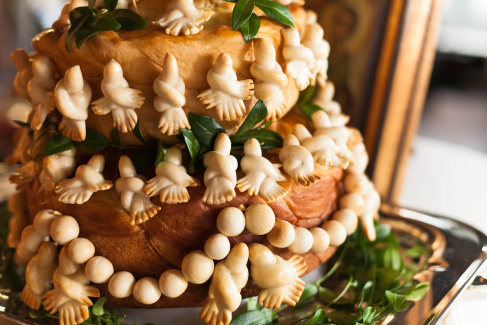Korovai
коровай, karavai, kravai, каравай, кравай
The korovai , karavai (modern Russian: каравай [kərɐˈvaj], Belarusian: каравай, Old East Slavic: караваи), or kravai (Bulgarian: кравай [krɐˈvaj]) is a traditional Bulgarian, Ukrainian, and Russian bread, most often served at weddings, where it has great symbolic meaning. It has remained part of the wedding tradition in Belarus, Russia, Ukraine, as well as in the Russian and Ukrainian diasporas. Its use in Belarus, Russia and Ukraine dates back to hospitality and holiday customs in ancient Rus. A similar bread (Polish: korowaj) is made in parts of eastern Poland. A round korovai is a common element of the bread-and-salt ceremony of welcome. The bread has ancient origins, and comes from the pagan belief in the magical properties of grain. Korovai was a large round braided bread, traditionally baked from wheat flour and decorated with symbolic flags and figurines, such as suns, moons, birds, animals, and pine cones. Wheat stalks, herbs, nuts, flowers and fruit were used to embellish the korovai. The white, shaped decorations are typically made from salt dough, also known as dead dough or baker's clay. The bread has no set design, and the style and ornamentation of the korovai varies by region, although colors red, gold and silver were most commonly employed in decoration. The bread was traditionally prepared in the home of the bride by women who sang traditional songs to guide them through the making. These women were called the korovainytsi, and were most often invited in odd numbers to do the job of making the bread, usually seven.
Source: Wikipedia



